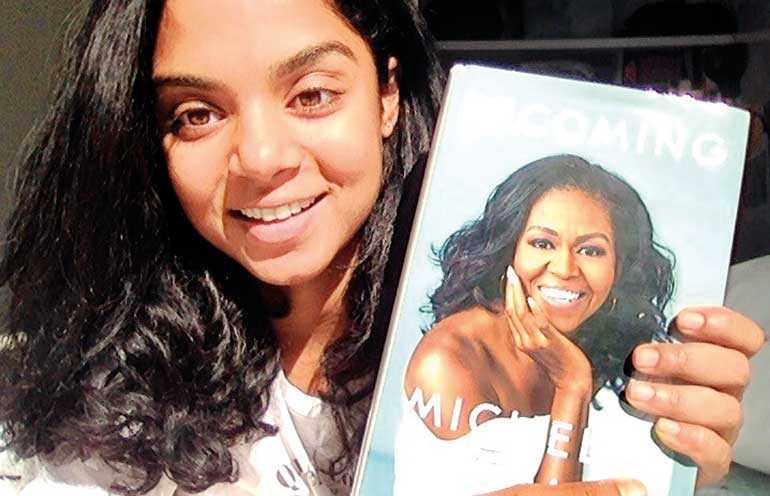Tuesday Feb 17, 2026
Tuesday Feb 17, 2026
Thursday, 21 February 2019 00:38 - - {{hitsCtrl.values.hits}}

By Afra Cader
I came across a post on Facebook, with the photo of these young girls at a footy match wildly cheering on their team player.
The photo summed up the power of representation, and it struck a chord with me. It made me reflect on a choice I made in my younger years, on why I do what I do and why I am so damn passionate about it.
Growing up in an expat community and in a school with over 64 nationalities, I was exposed to the cultural melting pot of the world. From South African Braais, to Indian Diwalis, to Ramadan in Ghabgas, to Christmas Lunches, to Sinhala classes. From entire friendship groups from different countries to the constant change of an expat life, we had diversity figured out. Or at least I thought so.
What was missing I later realised, was not spoken about nor visible on a global level. Whether it was the cover of the fashion magazine, the lead of the TV show or the guest speaker at the front of the room, I realised none of them really look like me.
As a young girl this taught me that success looked a different way for me and if I figured out how to make it, I sure as hell would have to blend in. That beauty standards were unattainable, so I’ll just have to accept I won’t be on the front cover. That the economic development of my country of birth determined my value and I shouldn’t argue with that.
In that moment, I had a choice. I could fall prey to this narrative. Or I could step into being a leader and create what it means to be a woman of colour. I chose to create. I took on visible leadership positions, I took on breaking stereotypes, I immersed myself in cultural experiences different to my own and I practiced being vocal in what I believed in.
I did this not for me, but for people who haven’t had the same opportunities as me. For the ones who consider themselves different to the mould and are looking to what they could be. The way I chose to live my life, is to educate people and change perspectives through everyday interactions. I hold myself to a high standard to engage with people in a way that leaves them curious and inspired.
Listening to Ally Watson from ‘Code Like a Girl’ speak recently at PwC, I came across the quote “You can’t be what you can’t see.” Hearing those words had a sharpness to it, the kind that resonates with a feeling that you’ve had for years. I want to challenge that however and say, “Be what you can’t see.”
You will never know the impact you can have on the people around you. This is exactly what Michelle Obama has done for millions of girls around the world, with her book ‘Becoming’ being among the fastest-selling nonfiction books in history.
(Afra Cader is Management Consultant/Social Impact and Gender Equality at PwC Australia, based in Melbourne. The opinions expressed are strictly that of the author in her personal capacity.)